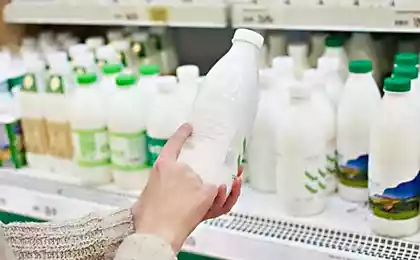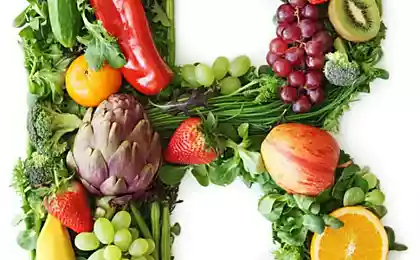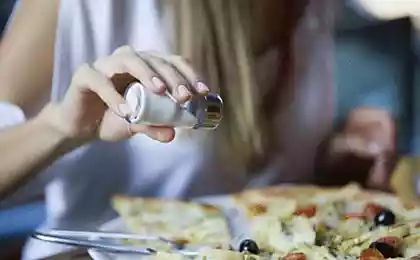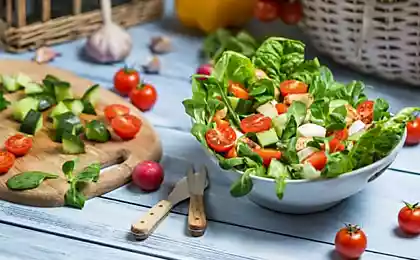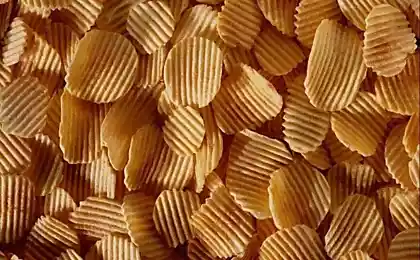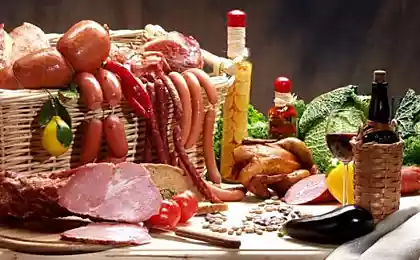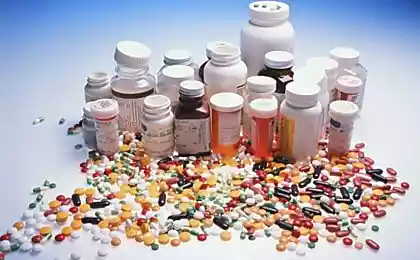1150
About harmful food additives
Did you know that the same manufacturer can produce products of three categories of the same product:
The first - for domestic consumption (in industrialized countries);
the second - for exports to other developed countries;
third - for export to developing countries.
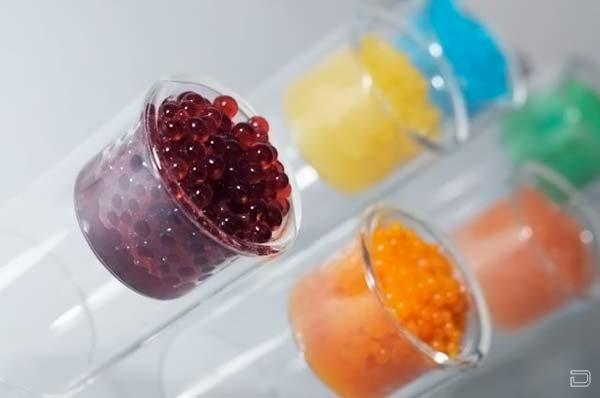
The third category is about 80% of food and beverage exported from the United States and Western Europe. According to the UN Food Commission, some Western firms expand exports not only environmentally harmful, but banned in developed countries. We believe they are not developed, so that's probably not care about the quality of exported products. The point here is in the fact that the Western consumer is well versed where environmentally friendly product without preservatives and where low-quality, our customer is looking mainly on price. Yes, the price of such products in two or even three times lower, but more expensive health!
Meanwhile, more than two hundred kinds of food additives not approved for use in Russia due to the incompleteness of complex tests.
Prohibited for use in the food industry:
E121 - citrus red dye
E123 - red amaranth (very dangerous)
E240 - formaldehyde (a preservative banned in Russia and in a number of countries).
Food additives falling within the category of suspicious:
E-104 - quinoline yellow dye (causes dermatitis)
E-122 - azorubin, karmuazin (banned in some countries)
E-141 - chlorophyllin
E-150 - sugar color
E-171 - titanium dioxide
E-173 - aluminum (banned in some countries)
E-180 - ruby litol (banned in some countries)
E-241 - guaiac (banned in the food industry).
Hazardous preservatives and emulsifiers, which can negatively affect your health. Attention! Marking their name listed on the product packaging.
Thus, to be proscribed include: E-103 (alkanin), E-105, E-111, E-125 (Ponceau), E-126, E-130, E-152 (coal).
Are classified as hazardous:
E-102 (tartrazine) - causes asthma attacks
E-110 (yellow dye) - can cause allergic reactions, nausea
E-120 (cochineal carmine acid) - health care organizations are advised to avoid it!
E-124 (cochineal red A) - a carcinogen, causes asthma attacks
E-127 (erythrosine) - can cause hyperactivity of the thyroid gland.
Preservatives and emulsifiers that may contribute to cancer. They are: E-131 (Blue patent V), E-142 (green S) E-210 (benzoic acid), E-211 (sodium benzoate), E-212 (potassium benzoate), E-213 (calcium benzoate ) E-215 (sodium salt), E 216 (propyl ether) and E-330 (citric acid).
Emulsifiers are harmful to the skin: E-230 (biphenyl, biphenyl), E-231 (ortho-phenylphenol), E 232 (sodium ortho-phenylphenol) and E-238 (calcium formate).
Can cause rashes in humans: E-311 (oktilgallat), E-312 (dotsetilgallat), E-313 (etilgallat).
Preservatives and emulsifiers, which may cause intestinal disorders: E-221 (sodium sulfite), E 222 (sodium bisulfite), E 223 (sodium pyrosulfite), E-224 (pyrosulfite, potassium), E-226 (calcium sulfite).
Disorder in blood pressure may cause such ingredients: E-250 (sodium nitrite) and E-251 (sodium nitrate).
For people who see to it that their food does not contain high cholesterol, should not upotreblint products that have marked additive E-320 and E-321.
Finally, there are emulsifiers and preservatives, which may cause stomach upset. Remember them: E-322 (lecithins), E-338 (phosphoric acid), E-339 (sodium orthophosphate), E-340 (tripotassium phosphate), E-311, E-407 (carrageenan), E-450 (pyrophosphate ), E-461 (methyl cellulose), E-462 (ethyl cellulose), E-463, E-465, E-466.
If you look at the labeling of products, you would be horrified, what to do, this is modern life. The worst thing is that most of these preservatives we consume every day, in large quantities. Look at the labeling of the product, and you will understand where all our sorrows.
Do you want to be sure that on your desk, natural and healthy food - Follow the simple guidelines:
- Carefully read the labels, you know deciphering codes and ignore the hasty buyers lacked everything;
- Do not buy products with unnaturally bright, flashy color. Rather, they are stuffed with dyes;
- Do not buy products with extremely long shelf life;
- Choose fresh raw vegetables and fruits. But be aware that imported fruits and vegetables (apples, lemons, and so on. D.) Is treated with special substances for better safety and polishing;
- The smaller the list of ingredients in the finished product, the fewer additives. Products with a refined, spicy taste is likely to contain a variety of additives;
- Instead of buying ready-made juice, make them yourself;
- Do not snack chips, preparing breakfast, soup from a bag, hot dogs, burgers with all sorts;
- Avoid processed and canned meat products such as sausages, stew with banks;
and, finally, prepare themselves, without any supplementation.
The first - for domestic consumption (in industrialized countries);
the second - for exports to other developed countries;
third - for export to developing countries.

The third category is about 80% of food and beverage exported from the United States and Western Europe. According to the UN Food Commission, some Western firms expand exports not only environmentally harmful, but banned in developed countries. We believe they are not developed, so that's probably not care about the quality of exported products. The point here is in the fact that the Western consumer is well versed where environmentally friendly product without preservatives and where low-quality, our customer is looking mainly on price. Yes, the price of such products in two or even three times lower, but more expensive health!
Meanwhile, more than two hundred kinds of food additives not approved for use in Russia due to the incompleteness of complex tests.
Prohibited for use in the food industry:
E121 - citrus red dye
E123 - red amaranth (very dangerous)
E240 - formaldehyde (a preservative banned in Russia and in a number of countries).
Food additives falling within the category of suspicious:
E-104 - quinoline yellow dye (causes dermatitis)
E-122 - azorubin, karmuazin (banned in some countries)
E-141 - chlorophyllin
E-150 - sugar color
E-171 - titanium dioxide
E-173 - aluminum (banned in some countries)
E-180 - ruby litol (banned in some countries)
E-241 - guaiac (banned in the food industry).
Hazardous preservatives and emulsifiers, which can negatively affect your health. Attention! Marking their name listed on the product packaging.
Thus, to be proscribed include: E-103 (alkanin), E-105, E-111, E-125 (Ponceau), E-126, E-130, E-152 (coal).
Are classified as hazardous:
E-102 (tartrazine) - causes asthma attacks
E-110 (yellow dye) - can cause allergic reactions, nausea
E-120 (cochineal carmine acid) - health care organizations are advised to avoid it!
E-124 (cochineal red A) - a carcinogen, causes asthma attacks
E-127 (erythrosine) - can cause hyperactivity of the thyroid gland.
Preservatives and emulsifiers that may contribute to cancer. They are: E-131 (Blue patent V), E-142 (green S) E-210 (benzoic acid), E-211 (sodium benzoate), E-212 (potassium benzoate), E-213 (calcium benzoate ) E-215 (sodium salt), E 216 (propyl ether) and E-330 (citric acid).
Emulsifiers are harmful to the skin: E-230 (biphenyl, biphenyl), E-231 (ortho-phenylphenol), E 232 (sodium ortho-phenylphenol) and E-238 (calcium formate).
Can cause rashes in humans: E-311 (oktilgallat), E-312 (dotsetilgallat), E-313 (etilgallat).
Preservatives and emulsifiers, which may cause intestinal disorders: E-221 (sodium sulfite), E 222 (sodium bisulfite), E 223 (sodium pyrosulfite), E-224 (pyrosulfite, potassium), E-226 (calcium sulfite).
Disorder in blood pressure may cause such ingredients: E-250 (sodium nitrite) and E-251 (sodium nitrate).
For people who see to it that their food does not contain high cholesterol, should not upotreblint products that have marked additive E-320 and E-321.
Finally, there are emulsifiers and preservatives, which may cause stomach upset. Remember them: E-322 (lecithins), E-338 (phosphoric acid), E-339 (sodium orthophosphate), E-340 (tripotassium phosphate), E-311, E-407 (carrageenan), E-450 (pyrophosphate ), E-461 (methyl cellulose), E-462 (ethyl cellulose), E-463, E-465, E-466.
If you look at the labeling of products, you would be horrified, what to do, this is modern life. The worst thing is that most of these preservatives we consume every day, in large quantities. Look at the labeling of the product, and you will understand where all our sorrows.
Do you want to be sure that on your desk, natural and healthy food - Follow the simple guidelines:
- Carefully read the labels, you know deciphering codes and ignore the hasty buyers lacked everything;
- Do not buy products with unnaturally bright, flashy color. Rather, they are stuffed with dyes;
- Do not buy products with extremely long shelf life;
- Choose fresh raw vegetables and fruits. But be aware that imported fruits and vegetables (apples, lemons, and so on. D.) Is treated with special substances for better safety and polishing;
- The smaller the list of ingredients in the finished product, the fewer additives. Products with a refined, spicy taste is likely to contain a variety of additives;
- Instead of buying ready-made juice, make them yourself;
- Do not snack chips, preparing breakfast, soup from a bag, hot dogs, burgers with all sorts;
- Avoid processed and canned meat products such as sausages, stew with banks;
and, finally, prepare themselves, without any supplementation.
